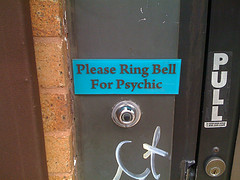September 9, 2025
Browse by Subject
- Defamation (588)
- Copyright (511)
- Legal Threat (507)
- Free Speech (411)
- Blogs (315)
- Section 230 (309)
- Anonymity (301)
- Social Media (297)
- Citizen Journalism (286)
- Newsgathering (286)
- Fair Use (280)
- Criminal (279)
- Journalism (266)
- Access to Gov't Information (242)
- Third-Party Content (239)
- Censorship (230)
- Twitter (229)
- Privacy (213)
- CMLP (211)
- Trademark (189)
- DMCA (162)
- Shield Laws (149)
- Access to Courts (148)
- Prior Restraints (120)
- FOIA (107)
- SLAPP (105)
- Cyberbullying (89)
- Elections and Politics (88)
- Legal Guide (84)
- Recording Others (83)
- User Comments or Submissions (82)
- Terms and Conditions (80)
- Publication of Private Facts (80)
- Right of Publicity (79)
- Subpoenas (78)
- Advertising (77)
- Consumer Ratings and Reviews (59)
- Intrusion (54)
- False Light (54)
- Student Speech (54)
- Gripe Sites (51)
- Congress (49)
- Hot News Misappropriation (47)
- Resources and Tools (45)
- Open Meetings (43)
- Children (42)
- Linking (41)
- Computer Fraud and Abuse Act (41)
- Obscenity (36)
- Access to Places (35)
- Business Torts (33)
- Identity (33)
- Aggregation (33)
- Trade Secrets (30)
- Trade Libel (25)
- Personal Jurisdiction (24)
- Licensing (24)
- Business Formation (23)
- Taxes (22)
- Sanctions (21)
- Employee Blogs (20)
- Domain Names (19)
- Real Estate (17)
- Retractions and Corrections (15)
- Credentials (15)
- DMLP (13)
- Cyberstalking (13)
- Reviews (11)
- Insurance (11)
- Hate Speech (11)
- Misappropriation (11)
- Establishment Clause (10)
- Government Speech (9)
- Website Design (7)
- Statute of Limitations (4)
- Science (3)
- Patent (2)
Recent Blog Posts
-
11 years 2 months ago
-
11 years 3 months ago
-
11 years 4 months ago
-
11 years 4 months ago
-
11 years 4 months ago
-
11 years 5 months ago
-
11 years 5 months ago
-
11 years 5 months ago
We are looking for contributing authors with expertise in media law, intellectual property, First Amendment, and other related fields to join us as guest bloggers. If you are interested, please contact us for more details.



 As of October 1, 2013, those targeted with frivolous lawsuits in Nevada designed to chill speech will enjoy substantially stronger protection, thanks to Nevada's new and improved anti-SLAPP statute.
As of October 1, 2013, those targeted with frivolous lawsuits in Nevada designed to chill speech will enjoy substantially stronger protection, thanks to Nevada's new and improved anti-SLAPP statute.
 A doctor in New York and a dentist in Oregon have both found out that
it may not be easy to sue for libel over online reviews of their
services, after their separate lawsuits were both dismissed. And it turns out that most of the dentists and doctors who have sued over online reviews have reached similar results.
A doctor in New York and a dentist in Oregon have both found out that
it may not be easy to sue for libel over online reviews of their
services, after their separate lawsuits were both dismissed. And it turns out that most of the dentists and doctors who have sued over online reviews have reached similar results.
 As a lawyer licensed in five states (MA, FL, CA, AZ, and NV) and who practices free speech law nationwide, I am in a position to comment on the relative merits of various states' views on First Amendment principles. Among the many states where I have worked on cases, Flori-duh is the worst. Hands down.
As a lawyer licensed in five states (MA, FL, CA, AZ, and NV) and who practices free speech law nationwide, I am in a position to comment on the relative merits of various states' views on First Amendment principles. Among the many states where I have worked on cases, Flori-duh is the worst. Hands down.
 So this case slipped by me when it first came down in January, but it raises my ire enough to come back to a bit late. It's
So this case slipped by me when it first came down in January, but it raises my ire enough to come back to a bit late. It's 


